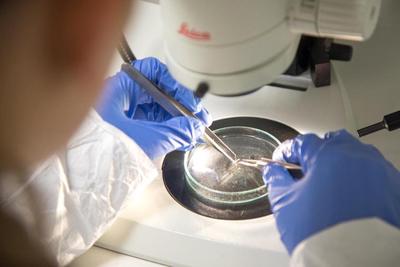Overview of research in the lab
Malaria is caused by a unicellular parasite that is transmitted by mosquitoes in the genus Anopheles. The goal of our work is to understand how parasite populations have adapted to the mosquito vector in order to predict global patterns of transmission. To study this, we are tracking genetically diverse parasites as they develop in diverse mosquito species. Using single-cell genomics and CRISPR, we can understand how specific variants in the parasite genome determine whether a parsite can be transmitted by some mosquito species but not by others. Finally, we hope to understand what elements of the mosquito physiology are causing this selection on the parasite, and how this varies at an individual, genotypic, and species level.
This work will provide a global view of the genetic basis of Anopheles species-dependent transmission dynamics. Understanding how adaptation shapes the malaria parasite is fundamental to public health because treatment or intervention for one parasite strain might be ineffective for another.
We work closely with several groups at the University of Glasgow including Lisa Ranford-Cartwright, Matt Marti, and Francesco Baldini.
